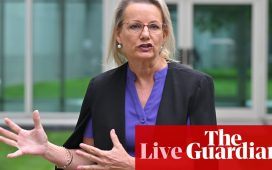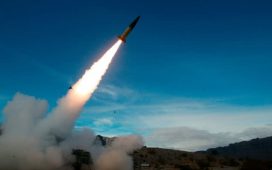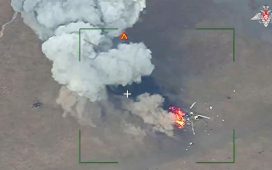BEIRUT (Reuters) – Lebanon will not be lured by a U.S. plan to invest billions in the country in return for settling Palestinian refugees, its parliament speaker Nabih Berri said on Sunday.
FILE PHOTO – Nabih Berri, speaks after he was re-elected Lebanon’s parliamentary speaker, as Lebanon’s newly elected parliament convenes for the first time to elect a speaker and deputy speaker in Beirut, Lebanon May 23, 2018. Lebanese Parliament/Handout via REUTERS
U.S. President Donald Trump’s blueprint for the Israeli-Palestinian conflict, set to be presented by his son-in-law Jared Kushner at a conference in Bahrain on June 25-26, envisions a $50 billion investment plan to lift the Palestinian and neighboring Arab state economies. But it has met broad rejection in the Arab world, even as some in the Gulf called for giving it a chance.
Lebanese parties have long held that Palestinian refugees cannot be permanently settled in the country, which is widely believed in Lebanon to be a goal of the Kushner plan.
“Those who think that waving billions of dollars can lure Lebanon, which is under the weight of a suffocating economic crisis, into succumbing or bartering over its principles are mistaken,” Berri said in a statement from his office.
The rejection of settling Palestinian refugees who must have the right of return stands at the forefront of these principles, he said.
Any investment “at the expense of the Palestinian cause” will not find fertile ground in Lebanon, Berri said.
The idea of permanently settling mainly Sunni Muslim refugees is highly sensitive in Lebanon, sparking fears of rocking its delicate sectarian balance.
Estimates of how many Palestinian refugees are in Lebanon vary. The United Nations says 470,000 Palestinian refugees are registered, though a 2017 official Lebanese census found the number to be around 175,000.
The U.S. plan envisions spending more than half of the $50 billion in the Palestinian territories over 10 years while the rest would be split between Egypt, Lebanon and Jordan.
The Trump administration hopes that wealthy Gulf states and nations in Europe and Asia, along with private investors, would foot much of the bill, Kushner told Reuters on Saturday.
Reporting by Ellen Francis; Editing by Keith Weir and Susan Fenton








